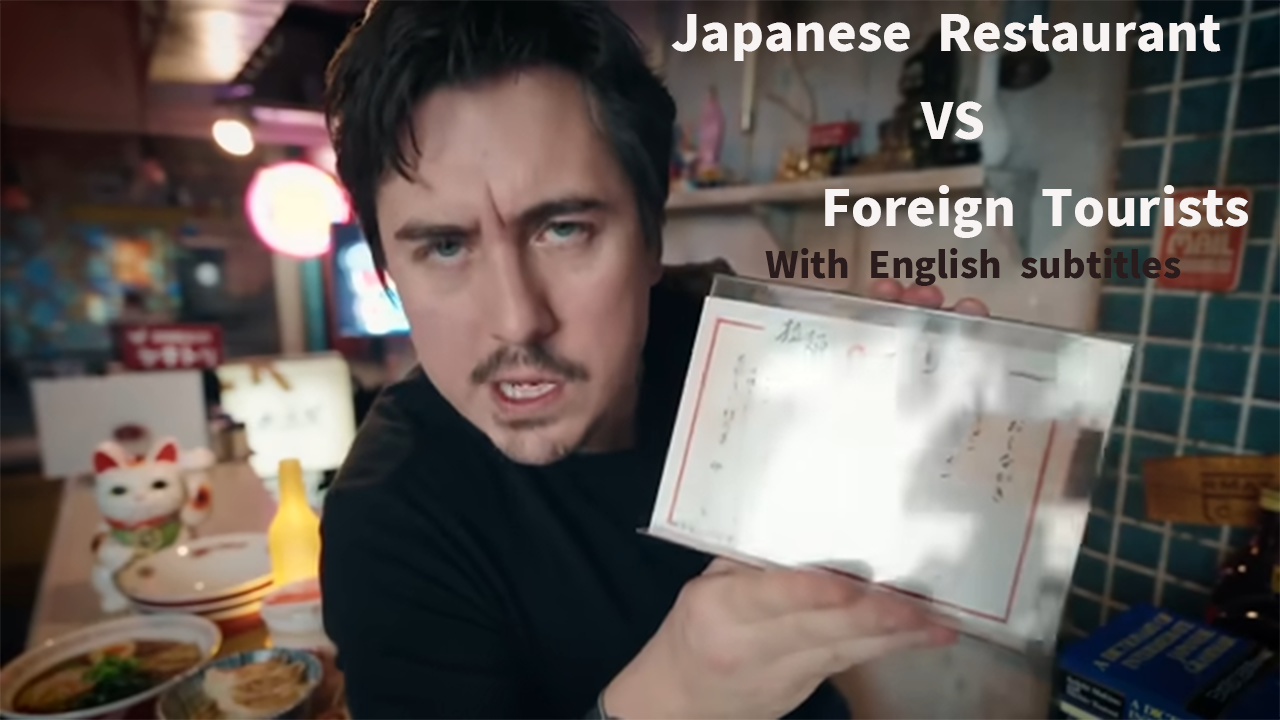- Japanese restaurants occasionally turn away foreign tourists for several reasons, though it’s important to note that such instances are not universally common and vary depending on the establishment and circumstances. Here are some reasons why it might happen
- It’s essential to recognize that while these reasons might occasionally lead to the turning away of foreign tourists, many Japanese restaurants welcome international visitors warmly and strive to provide an enjoyable and authentic dining experience. Understanding and respecting cultural differences and norms can often contribute to a positive interaction and dining experience for both tourists and restaurant staff.
Japanese restaurants occasionally turn away foreign tourists for several reasons, though it’s important to note that such instances are not universally common and vary depending on the establishment and circumstances. Here are some reasons why it might happen
- Language Barrier: Some traditional Japanese restaurants, especially smaller or more traditional establishments, may have staff who are not proficient in English or other languages commonly spoken by tourists. This language barrier can make communication difficult, leading to misunderstandings or challenges in taking orders and serving customers effectively.
- Cultural Differences: Japanese dining culture places a strong emphasis on manners, etiquette, and respect for traditions. Foreign tourists who are unfamiliar with these customs might unintentionally violate cultural norms, such as improper use of chopsticks, loud behavior, or not following specific dining rituals. In such cases, the restaurant may feel uncomfortable or prefer to maintain a certain ambiance that aligns with traditional Japanese expectations.
- Reservations and Capacity: Popular or smaller Japanese restaurants often operate with limited seating capacity and may require reservations, especially during peak hours. If tourists arrive without reservations and the restaurant is fully booked or unable to accommodate additional guests, they may be turned away to ensure the comfort and experience of already seated customers.
- Authenticity and Specialization: Some Japanese restaurants specialize in traditional cuisine that may not cater to broader international tastes or preferences. This specialization could mean that the menu offerings are less familiar to foreign tourists, potentially leading to misunderstandings or dissatisfaction with the dining experience.
- Preservation of Atmosphere: Certain Japanese restaurants prioritize maintaining a serene and traditional atmosphere conducive to enjoying the nuances of Japanese cuisine. This ambiance may not always align with the expectations or behaviors of some foreign tourists, leading the restaurant to exercise discretion in admitting guests who may not fully appreciate or respect the environment.
- Previous Negative Experiences: In some cases, Japanese restaurants may have encountered challenges or disruptive behavior from foreign tourists in the past, leading them to adopt policies or practices aimed at preserving a pleasant dining experience for all patrons, including regular customers and locals.



コメント
My brother recommended I may like this website. He used to be totally right. This put up truly made my day. You can not consider just how a lot time I had spent for this information! Thanks!
“I’m so glad to hear that you enjoyed it! Huge thanks to your brother for the recommendation, and I’m thrilled this post made your day. It’s great to know it was helpful to you!”
I like the efforts you have put in this, thanks for all the great content.
I’m really impressed together with your writing skills as neatly as with the structure on your blog. Is this a paid subject or did you customize it yourself? Anyway stay up the excellent high quality writing, it’s rare to see a great weblog like this one nowadays..
I am really enjoying the theme/design of your blog. Do you ever run into any web browser compatibility problems? A number of my blog visitors have complained about my blog not operating correctly in Explorer but looks great in Firefox. Do you have any tips to help fix this issue?
Some really fantastic information, Gladiola I noticed this.
Wow! Thank you! I constantly wanted to write on my blog something like that. Can I include a fragment of your post to my site?
Wow, incredible blog layout! How long have you been blogging for? you make blogging look easy. The overall look of your site is fantastic, as well as the content!
I am glad that I observed this web site, just the right information that I was searching for! .
Hi, I think your blog might be having browser compatibility issues. When I look at your website in Ie, it looks fine but when opening in Internet Explorer, it has some overlapping. I just wanted to give you a quick heads up! Other then that, superb blog!
Very interesting points you have mentioned, thanks for putting up.